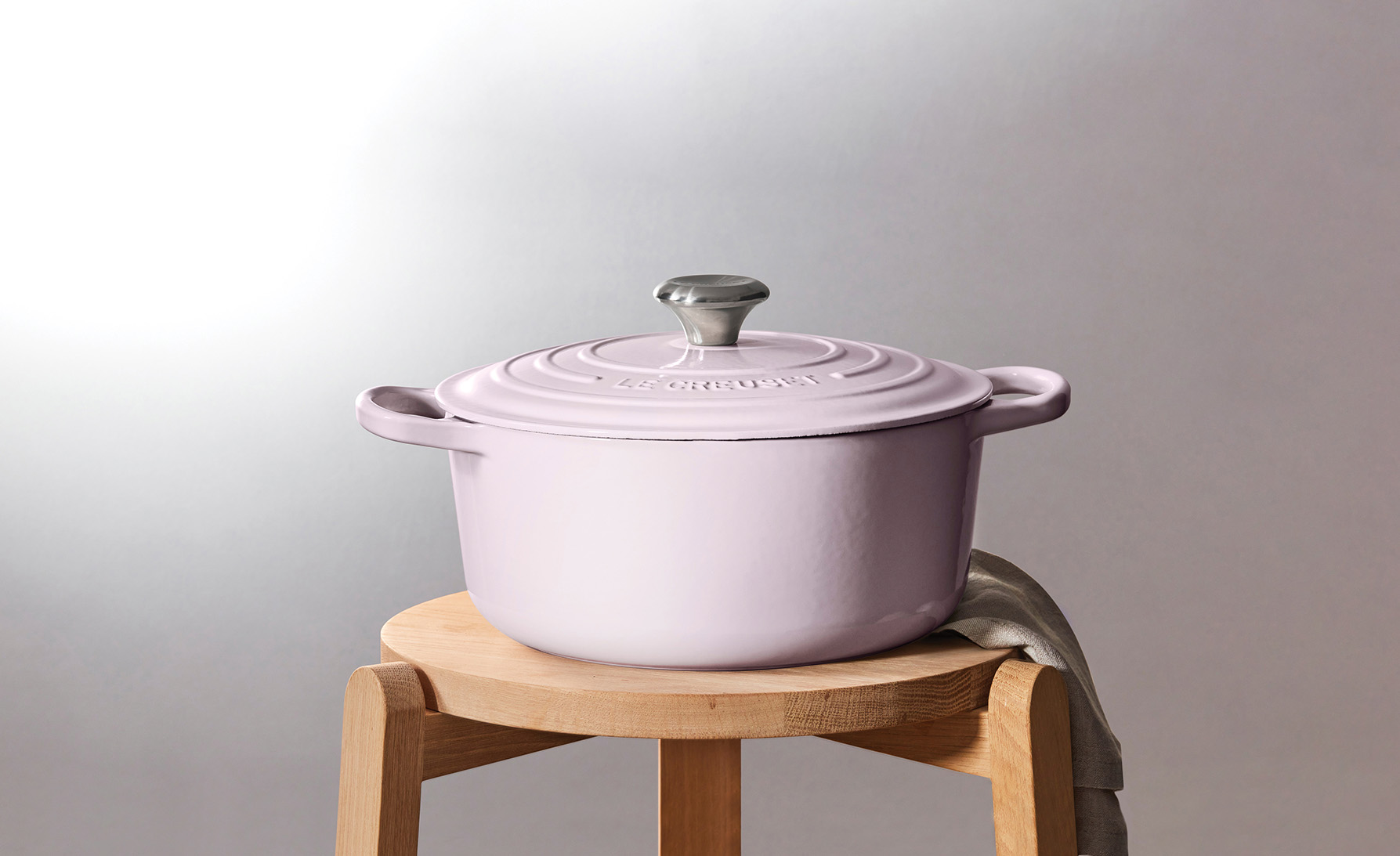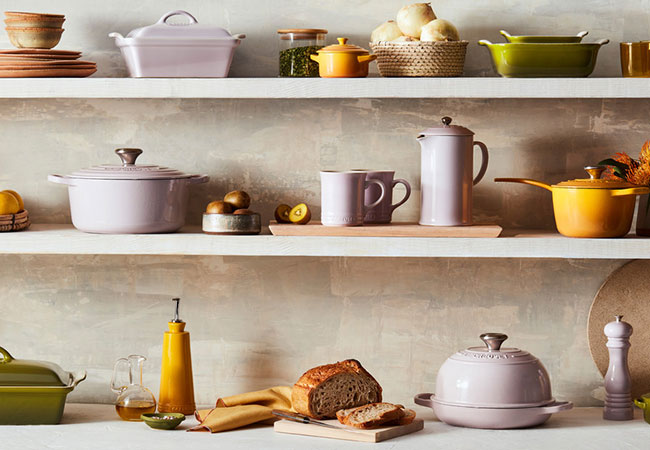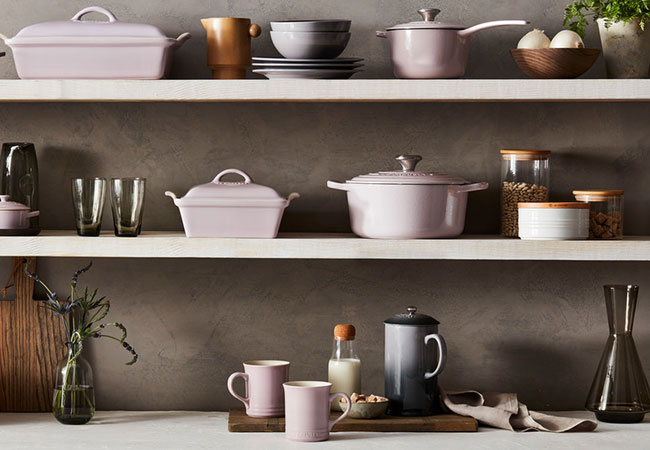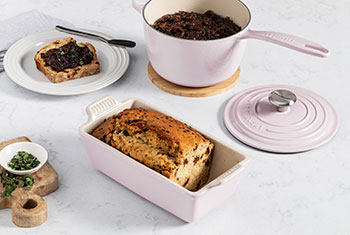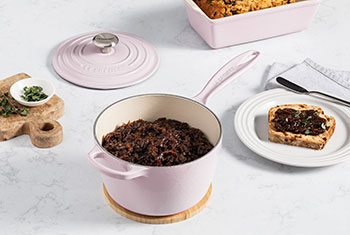Peel back a shallot, and you discover the most delectable soft shade of flavour. Shallot captures that potent delicacy—a hue so gentle, so refined, it enhances anything it touches with grace, glamour and gloss. This whisper of colour sweetens the air with a subtle, modern edge. Let it charm your kitchen and table with a powerful sense of intimacy.
Shop Shallot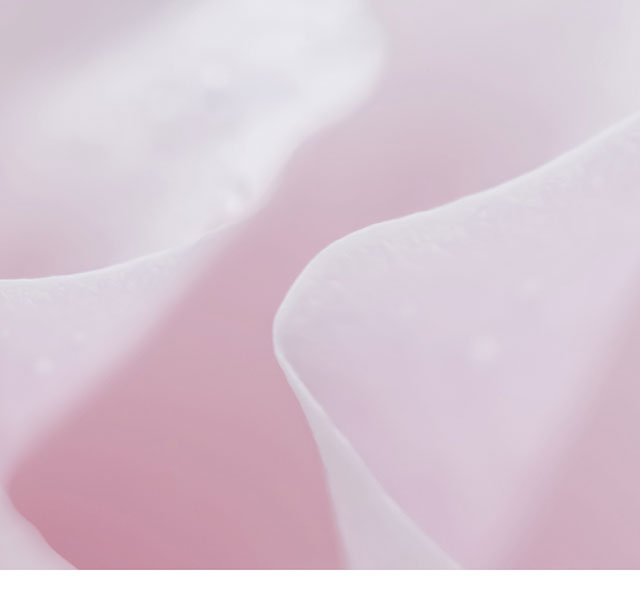
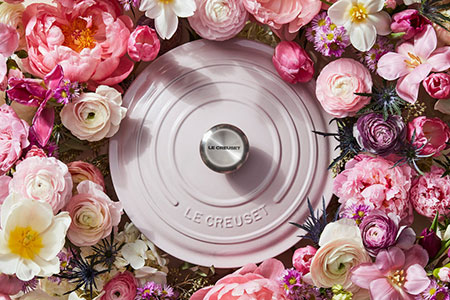
Colour Inspiration: Leading the Way
Over the years, Le Creuset has established colour leadership not only by perfecting classic, beloved colours that have stood the test of time but also by identifying and introducing new colour trends to the world. Shallot, a next-generation neutral, arrives as one of those trendsetting shades.
Named after the allium fundamental to French cuisine, Shallot hovers between the palest purple and pink with an extremely light whisper of lavender and grey. Creating a colour this soft with this much variation—an accomplishment that answers the aesthetics of the moment—demands true colour expertise. “It is hard to achieve colour stability with such light colours,” explains a specialist from Le Creuset’s colour lab. “Expertise in enamel and selection of specific pigments is essential.”
Shallot’s chameleon-like undertones offer just a hint of warmth, bringing a sense of calm confidence that can work as a sophisticated accent or as a refined alternative to more vibrant hues. The modern, nuanced color can’t be put in a box, instead bringing soft flexibility to a wide range of kitchens and styles. Drawing inspiration from the potent shallot itself, Le Creuset’s Shallot demonstrates that subtle can be powerful and that understatement is a statement all its own.
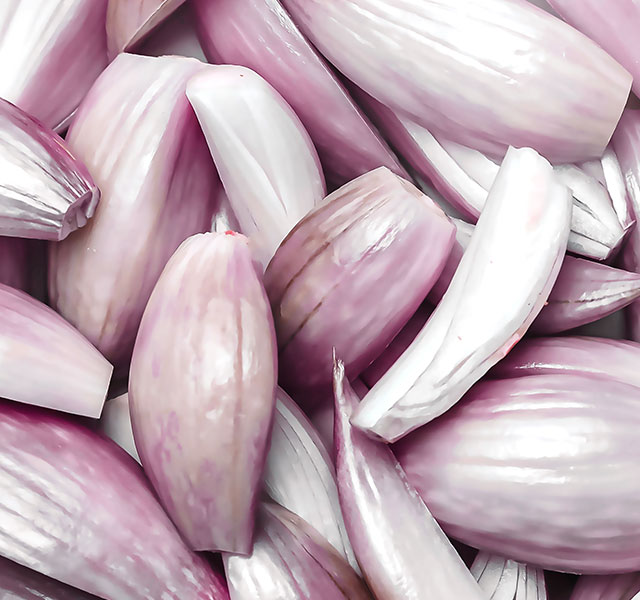
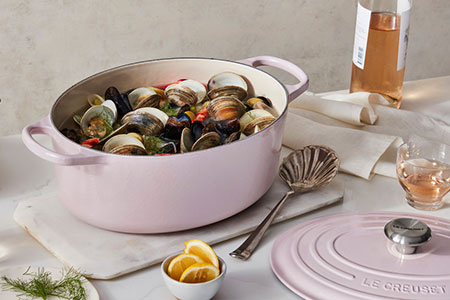
Culinary Inspiration: The Flavour of France
The allium family is filled with culinary all-stars (think garlic, onions, chives, leeks and so on), but among them all, the shallot became the darling of French cuisine. Smaller than most onion varieties, the shallot offers a more subtle, delicate and slightly sweet flavour.
When the Crusaders introduced the shallot to France in the 11th century, it quickly became a common ingredient in French cooking. In fact, the French people have claimed a particular type of shallot—the griselle, or French grey shallot— as the only “true shallot.” The dainty, teardrop-shaped allium is encased in a rosy, parchment-like skin that, when peeled away, reveals a light purple-grey bulb. Its mild, distinctive flavour can be enjoyed raw (such as in vinaigrettes) or cooked. Other cooking methods like frying or pickling shallot bring out its natural sweetness and colour, adding a pop of flavour to a variety of dishes. The shallot’s beautiful colour is as nuanced and varied as its taste, making it the perfect naming inspiration for our newest, softest neutral.

